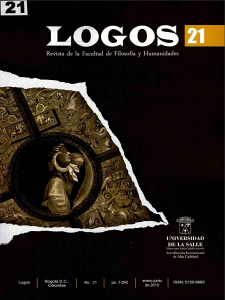Abstract
The purpose of this article is making a critical revision of the field of communication –understood as a field of research and reflection– and the way its existence has been tried to be legitimated since the postwar period. Our stance holds that, even though it is possible to find relatively linear and continuous narratives to understand communication, what is regarded here is reaching comprehension of the fragmentation and language games brought together in it. Besides, the core problem does not rely on the consolidation of a linear and scientific epistemological narrative, but on the manner discourse is articulated, giving place to such narratives turning around their political charges and not the supposed scientific value attributed to them.Downloads
Download data is not yet available.



